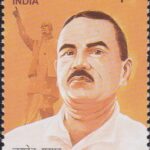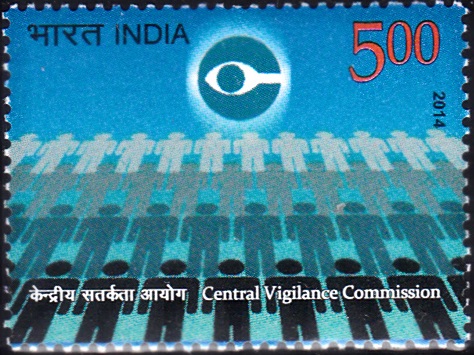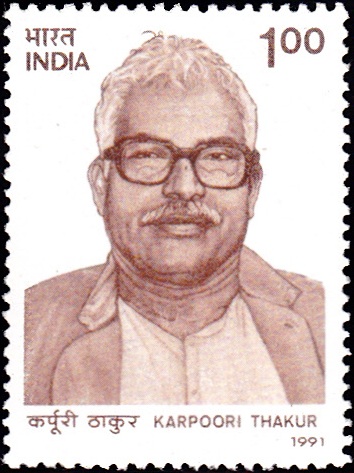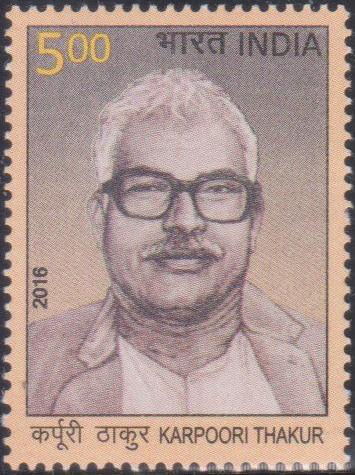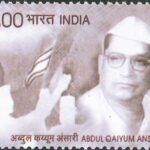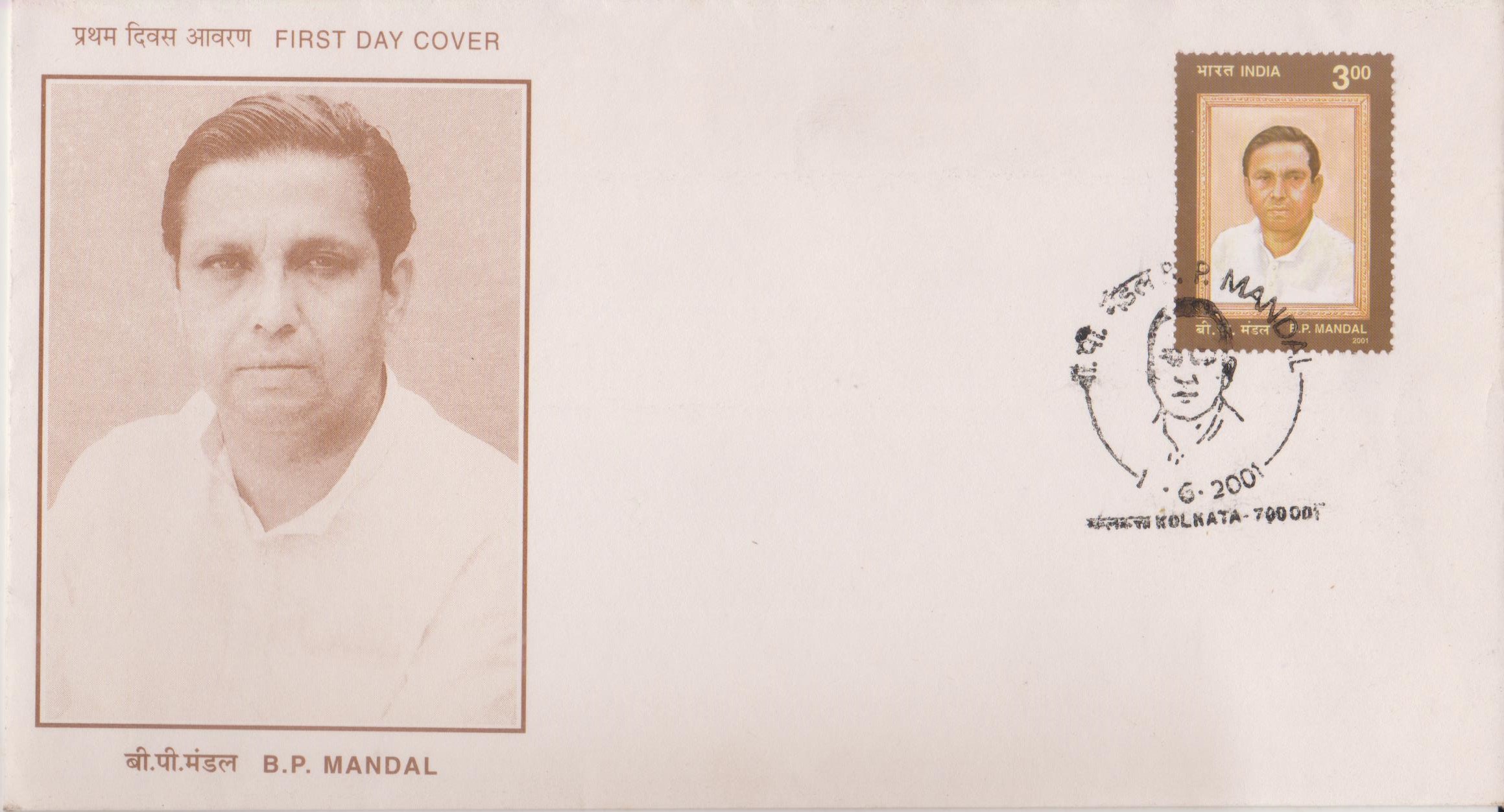
B. P. Mandal
A commemorative postage stamp on Bindheshwar Mandal, 7th Chief Minister of Bihar (01.02.68-02.03.68) and Chairman of 2nd Backward Classes Commission (Mandal Commission) :
 Issued by India
Issued by India
Issued on Jun 1, 2001
Issued for : The Department of Posts is happy to issue a postage stamp in honour of Shri B.P. Mandal.
Credits :
Stamp : Sankha Samanta
FDC : Based on material received from the sponsors.
Cancellation : Nenu Gupta
Type : First Day Cover
Colour : Four Colour
Denomination : 300 Paise
Overall size : 2.90 x 3.91 Cms.
Printing size : 2.54 x 3.55 Cms.
Perforation : 13 x 13
Paper : Imported un w/m stamp paper
Stamps Printed : 0.4 million
Number per issue sheet : 40
Printing Process : Photo Offset
Printer : Eagle Press Pvt. Ltd.
Name : Bindheshwari Prasad Mandal
Born on 1918 at Varanasi, Uttar Pradesh, India
Died on Apr 13, 1982 at Patna, Bihar, India
About :
- B.P. Mandal (1918-1982), former Chief Minister of Bihar, was born at Madhepura district in Bihar. He had his early education at Darbhanga and higher education at Patna. He worked as a Honorary Magistrate during 1945-51. Though his political career started with the Indian National Congress, he was soon attracted towards the ‘Socialist’ stream of thought, and joined the Samyukta Socialist Party.
- B.P. Mandal served as a legislator in Bihar for many years. As the Health Minister of Bihar during 1967-68, he introduced many significant reforms. He took over as the Chief Minister of the State in 1968. Though his tenure lasted only for a brief period, he left a deep imprint in the minds of the people because of his integrity and selflessness. He also made a mark as a parliamentarian, having been elected to the Lok Sabha in 1968. In 1978, he was appointed as the Chairman of the Backward Classes Commission of the Government of India, to investigate the conditions of the socially and educationally backward classes of citizens and report upon ways and means of upliftment of these sections of the society.
- The Mandal Commission drew sustenance from the Constitution of India, which contained various special safeguards for the historically deprived social classes viz. the Scheduled Castes, the Scheduled Tribes and the Other Backward Classes, compendiously called the backward classes. According to the eminent Constitutional Expert Grandville Austin, the Indian Constitution was first and foremost a social document, the majority of its provisions having been aimed at furthering the goals of social revolution. The historical mandate of the Backward Classes Commission under B.P. Mandal was also to further this social revolution, by imparting it the required momentum. The report submitted by him in 1980 is one among the most significant and forceful commentaries on the socio-political situation of the country. The Commission observed that the deprivation of the other backward classes was a very special case of a larger national issue of handicaps embedded in our social structure and that their removal would require far-reaching structural changes. The report of the Commission went ahead and laid down a series of recommendations aimed at bringing out the necessary structural changes for removing such social handicaps.
- In 1990 the Union Government implemented part of the recommendations of the Mandal Commission, showing its determination and will to assist the citizens in removing the handicaps that are embedded in the social structure.
- Though known for his empathy and kindness, particularly towards the less privileged, Mandal was also a hard task master. He was uncompromising in his convictions and efficient in disposing off the tasks assigned to him, whether pertaining to organisation of his political party or administrative matters of the Government. He also made significant contributions to the field of education, having founded many institutions engaged in primary and higher education.
- Text : Based on material received from the sponsors.


